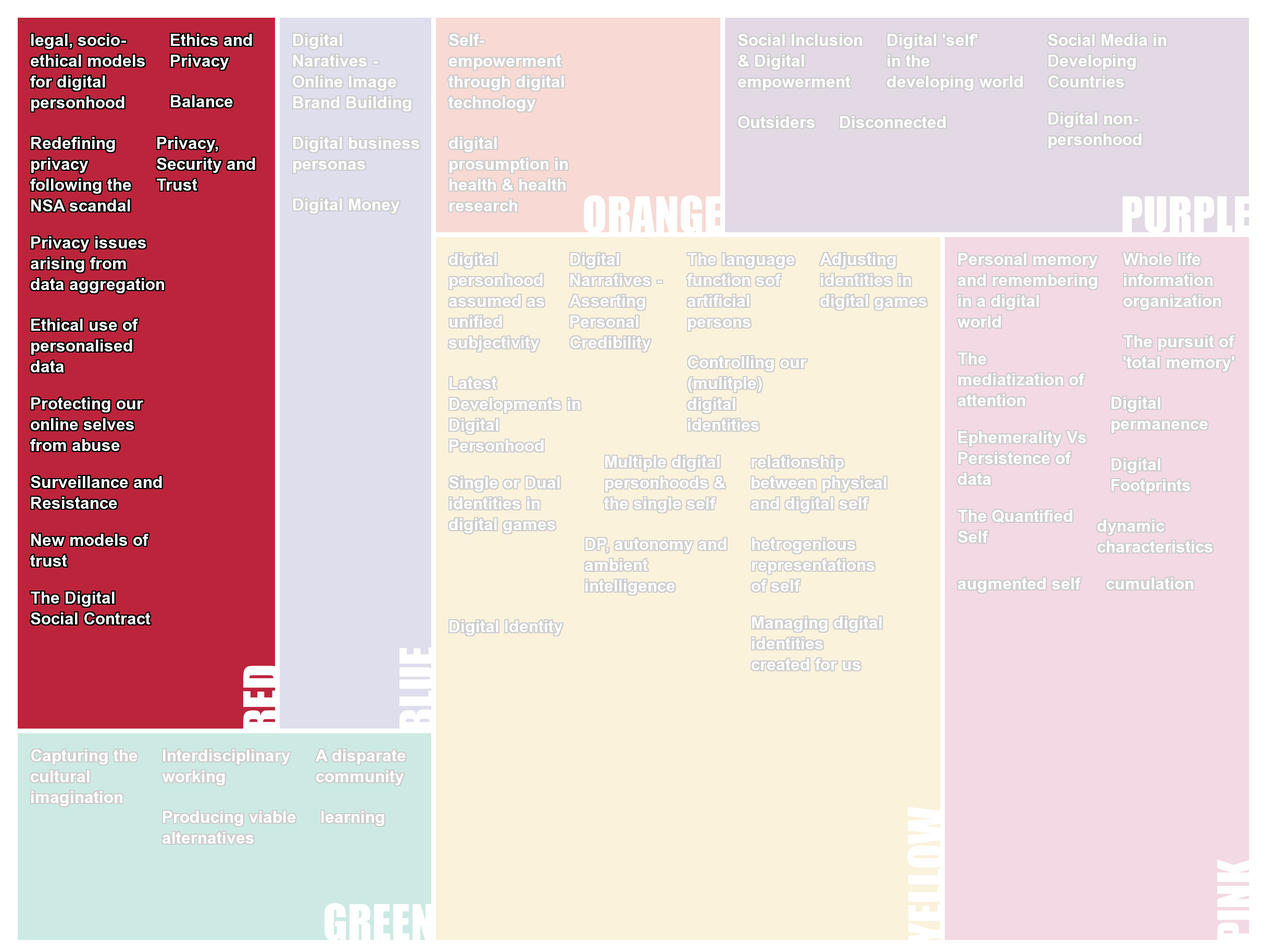First Digital Personhood Network Meeting
March 2014
The first Digital Personhood Network Meeting took place on the 6th & 7th of March 2014 with keynote presentations from Research Council staff, Professor Chris Hankin and Laura Hood from The Conversation, as well as updates on the five Digital Personhood sandpit projects.
The sandpit projects cover a diverse range of Digital Personhood aspects, from the business of generating new socio-economic models, to dealing with multiple digital personas and significant life transitions. They involve academics and collaborators from a wide range of backgrounds, from microeconomics and anthropology, through to web science and law.
The meeting was attended by a wide range of both project members and other stakeholders. Its purpose was to collectively generate a ‘research landscape’ for this area, and in addition identify potential joint impact activities.
In preparation for the Network Meeting, delegates were asked to answer two questions:
Q1. “What do you personally see as the three major challenges in Digital Personhood over the next 3 - 5 years?”
Q2. “What are the three most important impact activities that you personally foresee for your project?”
After providing their answers delegates were invited to take part in a remote, online study in which they each sorted all of the submitted responses into groups of similar answers. This information was used with the ‘Well Sorted’ tool to produce the ‘average’ sorting. The resulting groups of challenges and impact activities were used to drive breakout sessions which generated the different sections of the Digital Personhood research landscape.
Link:
http://www.digitalpersonhood.org/meetings/dpnm-mar2013.php
N.B. This page shows the challenge results (Q1). For more information see the Meeting Documents section below.
Red Group: The Digital Social Contract
Research Question #1: What are the unintended consequences (costs) of massive data sharing?
• Data management + legacy
• Privacy violations & big data snooping
• Use of data out of context (need to respect contextual integrity)
• Who controls the use of our data?
• How can we show people how their data is used?
• Where are the power differentials & how to rebalances?
• Do we own our own data? (The Klondike rush for gold)
• No ‘rule of law’. Do we need a social contract?
Research Question #2: What are the benefits of massive disclosure?
• What are the advantages + ingredients of a trusted community of mutual disclosure?
• Information for the public or common good
• What is the societal value of big data?
• What are the benefits to the individual/community of lifelogging/quantified self?
Research Question #3: Do we need a better social contract?
• What are the overarching models of governance + structure?
• How can individuals be empowered to challenge?
• What forms of visualisation might help us understand uses of data?
• How might the right to be forgotten play in this space
• Who are the different stakeholders & what is the citizen value?
Group Members:
Calvin Taylor
Mark Levine
Pam Briggs
Audrey Guinchard
Nadja Kanellopoulou
Chris Bevan

